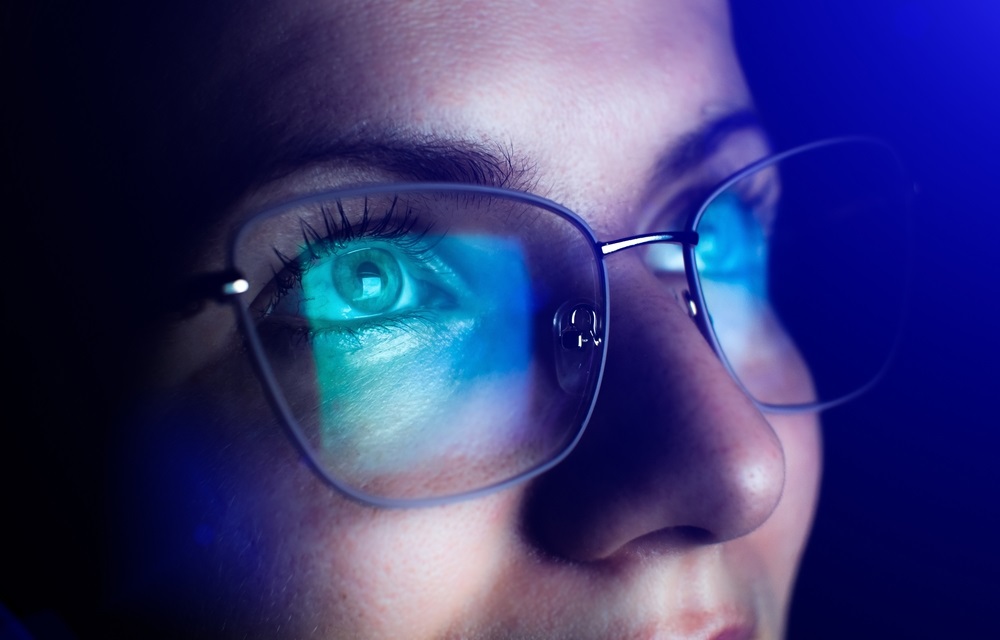In our fast-paced, technology-driven world, screens are an integral part of our daily lives. Whether it’s smartphones, tablets, laptops, or televisions, we are constantly exposed to screens emitting blue light. While this has undoubtedly transformed how we live and work, it has also raised concerns about its impact on our sleep quality. In this article, we will delve into the world of blue light and explore its effects on our ability to get a good night’s sleep.
Understanding Blue Light
Before we delve into the impact, let’s understand this kind of light. It is a type of visible light with a short wavelength, and its high energy characterizes it. It is part of the natural light spectrum and is emitted by the sun. However, with the advent of digital screens, we are exposed to artificial type of this light for extended periods.
How It Affects Sleep Patterns
The human body has a natural circadian rhythm, often called the internal body clock, which regulates sleep-wake cycles. Blue light exposure, particularly in the evening, can disrupt this rhythm. Here’s how it happens:
Suppression of Melatonin
Its exposure, especially from screens, reduces melatonin production, a hormone that controls sleep, in the body. This makes it harder to fall asleep at night.
Delayed Sleep Onset
The brain perceives this kind of light as daylight. When exposed to it in the evening, the brain delays the release of sleep-inducing hormones, making it challenging to get to sleep at the desired time.
The Impact on Sleep Quality
Unhealthy sleep patterns can cause a number of health issues, both short-term and long-term. Here’s how excessive blue light exposure can affect your sleep quality:
Insomnia
Persistent exposure to this kind of light can lead to insomnia. Having trouble falling asleep can harm overall health.
Disrupted REM Sleep
For memory consolidation and emotional regulation, Rapid Eye Movement (REM) sleep is crucial. Its disruption can reduce the amount of REM sleep, impacting cognitive functions.
Fatigue and Daytime Sleepiness
Lack of quality sleep due to blue light exposure can result in daytime fatigue and sleepiness, affecting productivity and overall well-being.
Increased Risk of Chronic Conditions
Long-term sleep disturbances caused by this kind of light can contribute to the development of chronic conditions such as obesity, diabetes, and cardiovascular diseases.
Mitigating the Impact
While it’s nearly impossible to avoid its exposure in today’s world, you can take action to lessen its effects on your sleep quality.
Limit Screen Time
Reduce screen time, especially in the hours leading up to bedtime.
Filters
Use filters on your devices or invest in blue light-blocking glasses.
Software Filters
These are applications or settings on devices that can reduce blue light emissions by changing the screen’s color temperature to make it warmer and less blue during evening hours.
Physical Filters
These are external screen protectors or glasses with special coatings that block or absorb this kind of light.
Blue Light Filter Apps
There are various apps available for smartphones and computers that can be installed to reduce its emissions.
Bedtime Routine
Establish a bedtime routine that consists of relaxation techniques and avoids screens.
Create a Sleep-Conducive Environment
Ensure your bedroom is dark and cool for better sleep.
Conclusion
In conclusion, blue light’s effect on sleep quality must be considered. Excessive exposure to it, especially in the evening, disrupts our natural sleep patterns and can lead to various health issues. To ensure a good night’s sleep, we must be mindful of our screen time and take proactive steps to reduce its exposure.
Get a Quote for our glasses, especially the blue light-blocking glasses.
FAQs
Can I use night mode on my device to reduce blue light exposure?
Night mode can help reduce its emission, but limiting screen time before bedtime is still advisable.
Are there any apps to help reduce blue light on smartphones?
Several apps can automatically adjust your screen’s color temperature to reduce it.
Do blue light-blocking glasses work?
Blue light-blocking glasses can effectively reduce its exposure, but their effectiveness may vary from person to person.
What is the ideal duration of screen-free time before bedtime?
Having at least an hour of screen-free time before bedtime is recommended to improve sleep quality.
Can children be more affected by blue light than adults?
Yes, children may be more sensitive to the effects of it, so it’s important to monitor their screen time, especially before bedtime.

